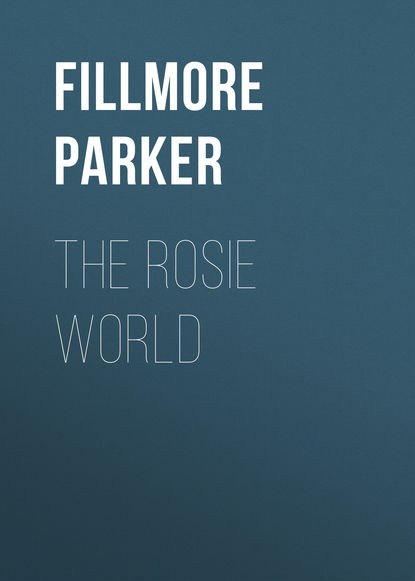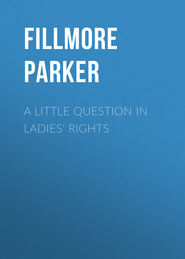По всем вопросам обращайтесь на: info@litportal.ru
(©) 2003-2024.
✖
The Rosie World
Настройки чтения
Размер шрифта
Высота строк
Поля
She and Rosie waited outside the office until George had made out his accounts and deposited his collections. Then all three started home.
For half an hour Rosie had not spoken. Neither of the others knew this, for Ellen, of course, had been too engrossed in herself, and George too engrossed in her, to notice it. Rosie was with them but not of them. She walked beside them now close enough to touch them with her hand but feeling separated from them by worlds of space. Her heart was like a little lump of ice that hurt her every time it beat. She waited in a sort of frozen misery for what she felt sure was coming. At last it came.
"George," Ellen began. There was a note of soft pleading in her voice that Rosie had never heard before. "Oh, George, I wonder if you'll ever forgive me for the way I've been treating you?"
"Aw, go on!" George's words were gruff but their tone fairly trembled with joy.
"I mean it, George," Ellen went on. "I've been as many kinds of a fool as a girl can be and I'm so ashamed of myself that I can hardly talk."
"Aw, Ellen," George pleaded.
"And I've been horribly selfish, too, and I've imposed on ma and Rosie here until they both must hate me." Ellen paused but Rosie made no denial. "And I've treated you like a dog, George, making fun of you and insulting you and teasing you. And, George, of all the men I've ever known you're the only one that's clean and honest right straight through. I see that now."
Ellen began crying softly, making pathetic little noises that irritated Rosie beyond measure but were like to reduce George to a state of utter helplessness.
"Aw, Ellen," he begged, "please don't talk that way!"
But Ellen wanted to talk that way. She insisted on talking that way. Her pride had been dragged in the dust but, by this time, she was finding that dust, besides being choking, is also warm and friendly and soothing. Enforced humiliation is bitter but, once accepted, how sweet it is, how comforting! Witness the saints and martyrs, and be not surprised that Ellen O'Brien finally acknowledged as true all the charges her late admirer had made. The fact was he had been too gentle with her! She was worse, far worse than even he had supposed. She didn't see how any one could ever again tolerate the mere sight of her!
"Oh, George, how you must hate me!" she murmured brokenly.
"Hate you!" George protested breathlessly. "Why, kid, I'm just crazy about you!"
Rosie, listening, caught her breath sharply. Her phrase, which she had laboured hard to teach him! But where had he got the deep vibrating tone with which he spoke it? Rosie had never heard that before.
After a moment, Ellen quavered: "Even – even yet, George?"
"Even yet!" George cried in the same wonderful voice that sent little thrills up and down Rosie's back. "Why, Ellen girl, don't you know that ever since the first day I saw you you've been the onliest girl for me!"
His arm was around her now, straining her to him, and Rosie knew, but for her own presence, he would be kissing her.
"I – I don't see why, George."
"But it's so, Ellen, it's so!"
They walked on a few moments in silence. Then George began soberly: "Of course, Ellen, you know I'm only a farmer and you know you've always said you'd never live in the country."
"George, don't remind me of all the foolish things I've said! Please, don't! Why, if I could go to the country this minute, I'd go and never come back! I hate the city! I wish I'd never have to see it again!"
George gasped an incredulous, "Really, Ellen? Do you really mean it?"
"Yes, really!" Ellen declared vehemently and George, untroubled to account for this sudden revulsion of feeling, threw up his head with a joyous laugh.
When they reached home, George said to Ellen: "Don't you want to sit out here on the porch a little while?"
Nobody invited Rosie to stay. She hesitated a moment, then said primly: "Good-night, everybody."
"Good-night," they chorused politely, as they might to any stranger.
Rosie started in, then turned back. "And, Jarge, I forgot to tell you about Monday afternoon. I'm sorry I can't go with you but Tom Sullivan invited me first."
"That so?" George said, and from his tone, Rosie knew that he didn't understand what she was talking about. Worse still, he wasn't interested enough to find out.
Rosie dragged herself slowly upstairs. In the bedroom, when she felt for matches, she discovered that her hand was still clutching the note which George had given her earlier in the evening. She read it again by the light of the candle. "… Say, kid, I'm just crazy about you!.." Jackie turned over in his sleep and Rosie hastily blew out the candle for fear he should open his eyes and see her tears.
She groped her way to bed in the dark and wept herself miserably to sleep.
CHAPTER XXXV
ELLEN MAKES AN ANNOUNCEMENT
The next morning at breakfast Ellen declared herself. She addressed her mother, but what she had to say was for the whole family.
"I just want to tell you, Ma, I'm done with stenography forever. 'Tain't my line and I know it and I should have known it long ago. Now you needn't argue because that's all there is about it."
Mrs. O'Brien looked at Ellen blankly. "Why – why, Ellen dear," she stammered, "what's this I hear you saying?"
Ellen repeated her announcement slowly and distinctly.
"But, Ellen," Mrs. O'Brien protested, "how can you talk so and the beautiful way you've been getting on and the beautiful way Mr. Hawes has been treating you? And what will Mr. Hawes say – poor, kind-hearted gentleman that he is! Oh, Ellen dear, with your fine looks and your fine education I beg you not to throw it all away!"
Mrs. O'Brien mopped her eyes with her apron and pleaded on. It did not occur to her to ask the reason for Ellen's sudden decision. After all, sudden decisions were merely characteristic of Ellen. Terence, however, peered at his sister sharply.
"Huh! Seems to me stenography was all right yesterday! What's happened to make you change your mind? Did that Hawes fellow say something to you last night at the Island?"
Ellen had decided that the family were not to know the details of the previous night's adventure and, before they came down in the morning, she had pledged Rosie to secrecy. Yet some sort of explanation had to be offered. She looked at Terry now with a candour that was new to her and that did much to win his support.
"Terry," she began slowly, with none of her usual aggressiveness, "you always thought my going to that business college and trying to do office work was foolish. You've said so all along. I didn't use to believe you were right but I do now. I'd never do decent office work in a hundred years. I'm sorry all the money you and dad had to put up and I'll pay you back if I can."
"Gee!" murmured Terry in astonishment, "you sure must have got some blowing up to make you feel that way about it!"
"Well, that's the way I do feel," Ellen said quietly.
"But, Ellen," Mrs. O'Brien wailed, "you don't mean it – I know you don't! Why, what'll you do if you throw up this fine position with Mr. Hawes? Nowadays a girl can't sit at home and do nothing! She's either got to work or get married." Mrs. O'Brien paused with a new idea which her own words suggested to her. "Is it – is it that you're getting married?"
Ellen spoke quickly: "Ma, I expect to work and I'm going to work. But I'm going to do something I can do well."
"That you can do well!" echoed Mrs. O'Brien. "I don't rightly catch your meanin', Ellen. Here you've landed a fine position and your boss is a nice friendly gentleman and now you're turning your back on it all to take up something else! I don't understand you at all, at all! And to think," Mrs. O'Brien concluded brokenly, "of the skirts and shirtwaists that I've stayed up all hours of the night to iron for you, just to keep you lookin' sweet and clean down at that office!"
"Ma, I'm sorry to disappoint you – honest I am. But, don't you see, it's just this way: I've made a bad mistake and the sooner I get out of it the better it will be for me. What I ought to do is something I can do."
"Something you can do, indeed! And will you tell me, me lady, what is it you can do so much better than stenography?"
Ellen flushed but answered firmly: "I can trim hats."
"Trim hats!" screamed Mrs. O'Brien. "What's this ye're sayin'? Do you mean to tell me that you're willing to be a milliner when you might be a stenographer? Why, anybody at all can go and be a milliner!"
"Anybody can't be a fine milliner. And you needn't think there isn't good money in millinery. The head of a big millinery department gets a couple of thousand a year!"










